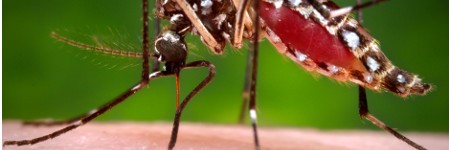US Virgin Islands Hotel & Tourism Association
 Protecting workers and tourists from mosquito bites can prevent diseases like Zika.
Protecting workers and tourists from mosquito bites can prevent diseases like Zika.
Did you know information can help keep you safe from Zika? Commissioner of the U.S. Virgin Islands Department of Health Michelle S. Davis, PhD, stated, “Information is a powerful tool in the fight against Zika. When people are empowered with accurate information, they can make better decisions for themselves and their loved ones. There are many actions both residents and visitors can take to remain Zika free, to include using EPA-registered insect repellents, wearing permethrin-treated clothing, and using condoms.”
Zika is spread primarily through the bite of an infected Aedes aegypti species mosquito. These mosquitoes spread dengue and chikungunya as well. Zika can also be spread through sex with either a man or a woman who has the virus. The most common symptoms of Zika are fever, rash, joint pain, and red eyes. Many infected people will not have symptoms or will have mild symptoms. However, getting infected with Zika during pregnancy can cause a serious birth defect called microcephaly and other serious brain defects.
Because everyone is at risk, DOH has partnered with the Centers for Disease Control and Prevention (CDC) to help keep both residents and travelers safe from Zika. Commissioner Davis remarked, “DOH continues to be vigilant in providing free services, facilitating prevention methods, and education awareness to the public. We are educating both clinicians and community members and visitors about Zika in addition to offering free testing and home mosquito control services for pregnant women. Free testing is also available for anyone with Zika symptoms.”
Travelers to the U.S. Virgin Islands can find the latest information about Zika and how to protect themselves by visiting the CDC Zika Travelers Website. You can make sure your clients are prepared and help keep them safe by sending them this link along with their travel itinerary.
Outdoor workers in the U. S. Virgin Islands can find the latest information on Zika and mosquito prevention by visiting CDC’s website on Zika Prevention for Workers or checking the Occupational Safety and Health Administration’s “Quick Card” on Zika Virus Protection for Outdoor Workers
Everyone should take steps to protect themselves and their family, especially if they or a family member is or may become pregnant. According to Dr. Davis, “DOH is doing everything we can to keep our communities safe from Zika.” The DOH offers “Zika Prevention Kits,” containing a bed net, mosquito dunks, mosquito repellent, and permethrin spray (for clothing) to all pregnant women.
To learn more about these free DOH services or about how you can become a Zika peer educator, call the DOH at 340-712-6205 or visit www.healthvi.org or www.facebook.com/virginislandsDOH. To get answers to your questions about Zika contact the CDC at 1-800-CDC-INFO or visit the CDC Zika Website.
DOH reminds everyone to protect themselves and their families by following the “Four Ds” of Zika prevention:
- Dress – wear protective clothing
- Drain – get rid of water containers in and around your home or work areas
- Defend – use repellent on exposed skin and treat clothes with one of several EPA-approved repellents
- Discuss – spread the word about the simple things you can do to make a difference. Zika is spread primarily through the bite of an infected Aedes aegypti species mosquito and can also be passed sexually from a man or a woman infected with Zika to his or her partner.
Links to resources are listed below for your convenience:
Zika transmission: http://www.cdc.gov/zika/transmission/index.html
Prevention for outdoor workers: http://www.cdc.gov/niosh/topics/outdoor/mosquito-borne/zika.html
Protection while traveling: http://wwwnc.cdc.gov/travel/page/zika-travel-information
